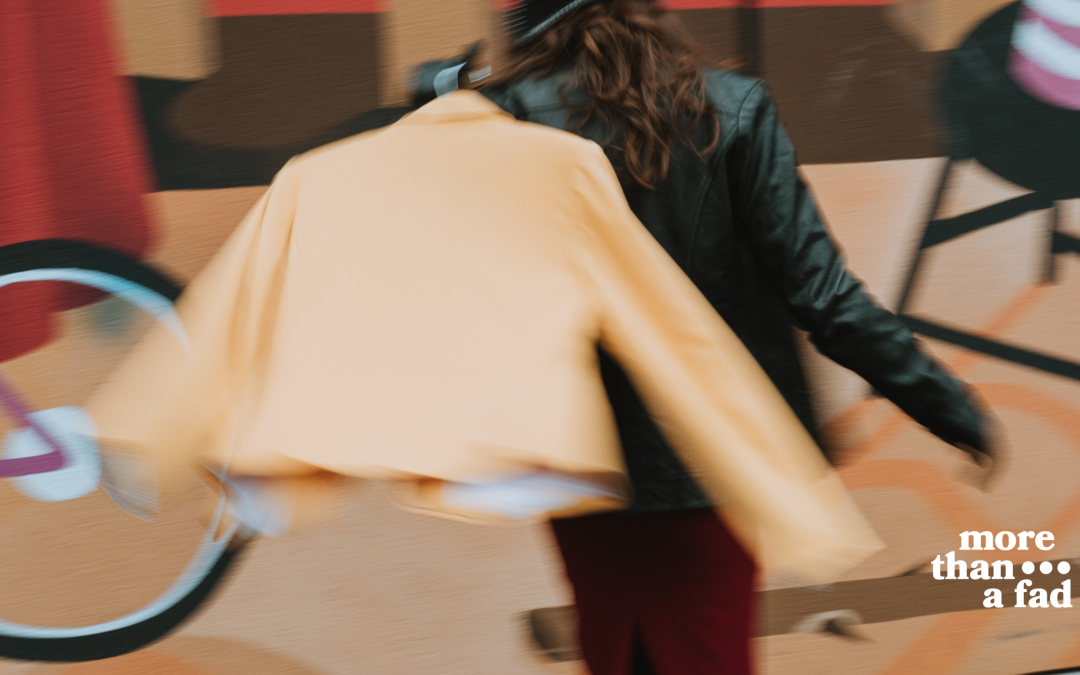In an era where trends change overnight and social media fuels an insatiable appetite for the new, the fashion industry has undergone a seismic shift. Fast fashion, characterized by its rapid production and low-cost clothing, has become a global phenomenon. While it offers affordable and trendy options, its detrimental impact on the environment, labor conditions, and consumer culture cannot be overstated. In contrast, More Than a Fad Thrift Store provides a sustainable and ethical alternative, empowering consumers to build responsible wardrobes and challenge the fast fashion model.
The Environmental Toll of Fast Fashion
Fast fashion thrives on speed and volume, leading to staggering levels of waste and pollution. According to the United Nations Environment Programme, the fashion industry is responsible for 10% of global carbon emissions—more than international flights and maritime shipping combined. The production of synthetic fabrics like polyester, commonly used in fast fashion, relies heavily on fossil fuels, further exacerbating climate change.
Moreover, the industry is the second-largest consumer of water worldwide. For example, producing a single cotton shirt requires approximately 2,700 liters of water—the equivalent of what one person drinks over two and a half years. Beyond production, the disposal of fast fashion garments compounds the problem. An estimated 92 million tons of textile waste are generated annually, much of which ends up in landfills or incinerators, releasing harmful chemicals and greenhouse gases.
Exploitative Labor Practices
The low price tags of fast fashion often come at a steep human cost. To keep production costs minimal, many brands outsource manufacturing to developing countries, where labor laws are lax or poorly enforced. Workers, including children, are subjected to unsafe working conditions, long hours, and meager wages. The 2013 Rana Plaza disaster in Bangladesh, where over 1,100 garment workers lost their lives due to unsafe building conditions, highlighted the grim realities of fast fashion supply chains.
The Cultural Impact of Fast Fashion
Fast fashion perpetuates a culture of disposability. By churning out cheap and low-quality garments, it encourages consumers to view clothing as a short-lived commodity rather than a long-term investment. This mindset undermines the value of craftsmanship and fuels a never-ending cycle of consumption and waste. Additionally, fast fashion’s emphasis on fleeting trends fosters a sense of inadequacy and pressure to constantly update one’s wardrobe, leading to financial strain and environmental harm.
More Than a Fad: A Sustainable Solution
Against this backdrop, thrift stores in Edmonton like More Than a Fad offer a beacon of hope. By promoting second hand shopping, More Than a Fad helps extend the lifecycle of clothing, reducing waste and conserving resources. Each item purchased from a thrift store represents one less garment destined for a landfill and one less demand for new production.
More Than a Fad also champions ethical consumerism. Unlike fast fashion, which often obscures its supply chain, thrift stores operate on a model of transparency and community impact. Many thrift stores, including More Than a Fad, are non-profit organizations that reinvest their proceeds into charitable initiatives. This creates a ripple effect of positive change, transforming the act of shopping into a form of activism. By choosing to shop or donate to More Than a Fad, you are directly supporting Adeara Recovery Centre—a long-term addiction recovery centre for women and children in Edmonton. When you support More Than a Fad, you’re supporting a sustainable future—giving second-hand items a new life, reducing the harmful effects of fast fashion on our planet and empowering the women at Adeara to live in sustainable recovery.
Building a Responsible Wardrobe
Shopping at More Than a Fad lets you build a wardrobe that truly reflects your values. By choosing pre-loved clothing, you can create a unique style that goes beyond passing trends. Thrifting gives you the freedom to mix and match, allowing you to express yourself in creative and resourceful ways.
But it’s more than just fashion—it’s about making a difference. When you shop with us, you’re not just finding great pieces; you’re also learning about the impact of fast fashion on our world. Together, we can challenge the norm, reduce waste, and inspire a shift toward more sustainable choices. Every purchase is a step toward a better future.
Conclusion
The fast fashion industry has entrenched itself as a significant contributor to environmental degradation, labor exploitation, and cultural consumerism. However, alternatives like More Than a Fad Thrift Store offer us a way forward. By embracing second hand shopping, we can reduce our ecological footprint, support ethical practices, and build meaningful wardrobes that reflect our values. In doing so, we become part of a broader movement to redefine fashion as a force for good, proving that style can be both responsible and timeless.
